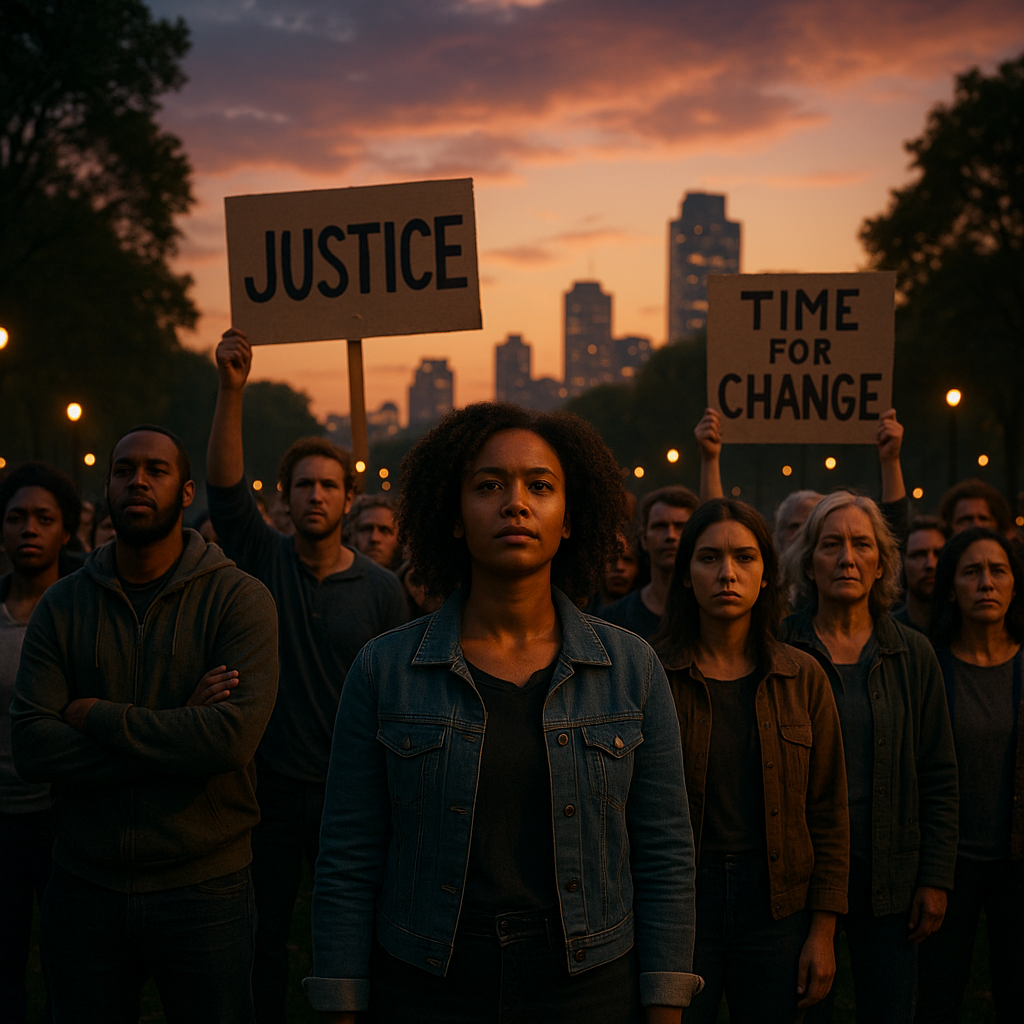How Do You Deal with the Frustration of Powerlessness ?

We all find ourselves in a difficult place right now. I was going to say we Americans—but what’s happening here is rippling outward, affecting people far beyond our borders.
Normally, there are checks and balances—levers and watchdogs designed to prevent abuse of power. But those limits keep being removed, overwhelmed, or ignored. Even those who are directly hurt now—or will be soon—may still support the very people causing the harm.
Here’s a brief look at what’s already happened:
-
- Between 128,000 and 275,000 federal employees have lost their jobs
-
- Approximately 5 million U.S. citizens will lose some or all of their access to food assistance (SNAP)
-
- 6 to 7 million U.S. citizens will lose their health coverage (Medicaid)
-
- Food costs have increased by roughly 10%, driven in part by mass deportations and their threat
-
- Deportations have not increased significantly from last year, but their violent, lawless execution chills communities
-
- Since the McCarthy era, no U.S. administration has launched a media crackdown as broad and systematic as the current one, aimed at weakening critical journalism and chilling free speech
-
- 1,400 Department of Education employees have been laid off, and $6.8 billion in school funding frozen
-
- USAID has been largely dismantled—83% of programs canceled, 94% of staff laid off
-
- Environmental protections rolled back, international climate commitments abandoned, fossil fuel development prioritized
-
- The executive branch granted sweeping new powers to manipulate agencies and reduce the federal workforce
These changes make it hard to deny an accelerating shift of power toward the executive branch. Congress rubber-stamps what should be unlawful actions, and the Supreme Court often fails to uphold lower court checks. It’s increasingly difficult to argue that the president cannot act in ways that appear unlawful or unconstitutional.
From a larger perspective, this is the real danger: a system signaling that resistance is futile. This threatens the future of democracy, the rule of law, and institutional integrity. It places greater responsibility on citizens, advocacy groups, and the press to stay vigilant. Yet many disengage, lose faith, or feel their voices don’t matter—feeding a dangerous feedback loop where power consolidates further.
History shows that even when the deck seems stacked, change comes from persistent grassroots movements, legal challenges, and shifts in public opinion.
Each of us has a tipping point—a moment when hopelessness pushes us into action. That moment is deeply personal. For one, it might be seeing a friend threatened. For another, a law harming their family or a lie so brazen it breaks trust. Some shut down. Others act. Sometimes, the pressure of hopelessness becomes unbearable, and action feels like the only way to reclaim agency.
Hopelessness can paralyze—but it can also ignite.
Movements spark not just from injustice, but when injustice becomes undeniably personal. When someone realizes, “This isn’t just bad; this is mine to face.” You can’t manufacture that moment for others. You can only help make the truth visible, give people tools to respond, and be there when they hit their own line.
So the best we can do is discourage those around us from disengaging and encourage them to reengage—reminding them a line exists within everyone.
But reflection alone won’t stop this.
You already know the truth. How long will you pretend you don’t see it?
You feel the shift. You see the headlines. You hear the silence from institutions meant to check power, not bow to it.
Let’s skip the illusions:
-
- Over a quarter million federal workers gone
-
- Millions losing food aid and healthcare
-
- Food prices spiking because of fear-driven deportations
-
- ICE raids like militarized theater
-
- Independent media under siege
-
- Education gutted
-
- Climate policy sold off
-
- Whole departments dismantled with barely a whisper from Congress
And it keeps coming because those in power don’t care if it’s illegal or unconstitutional—not if no one stops them.
Who’s going to stop them?
You?
Good. Because no one else will.
The scariest part isn’t that this is happening. It’s that so many watch and tell themselves it’s too late, too big, or that they’re too small.
But systems don’t collapse because they’re strong—they collapse because the people who could say no… didn’t.
So say it. Say no. Say it loud. Say it with your name on it. Say it in a meeting, on a sign, in a vote, or in refusal.
If you’re breathing and paying attention, you still have a job.
Choose one thing and make it loud:
-
- Stand up at a local meeting and ask who else sees this is unconstitutional
-
- Help someone show up who is feeling ready to give up
-
- Refuse to ignore anyone who says this is business as usual
This is not normal. You are not powerless.
You’re deciding if you’re ready to act like it.
You already know.
So what will you do?
If this resonates, please share it. Talk about it. Connect with someone who feels close to giving up. And most importantly—take that first step. Because your voice matters.
